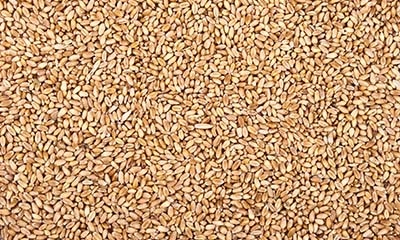
by Isis Almeida and Anatoly Medetsky
Russia’s wheat-export tax, which may be extended for another season, has become inconsequential as back-to-back bumper crops in the world’s largest shipper of the cereal have helped cut prices, analysts said.
The levy is “irrelevant,” said Dmitry Rylko, a director at the Moscow-based Institute for Agricultural Market Studies, or Ikar. With global wheat prices close to an almost six-year low and the Russian currency strengthening, traders are only paying the minimum duty of 10 rubles (15 U.S. cents) a metric ton.

Farmers in Russia don’t have much of a choice to switch to other crops. (Photo: Alexan2008/Thinkstock)
Russia sees no reason to cancel the tax next season as opposition to the duty fades and the nation’s shipments head for a record, Agriculture Minister Alexander Tkachev told reporters in Moscow in April. Earlier this year, the National Association of Exporters of Agriculture Products, representing companies including Cargill Inc., asked the government to end the levy to compensate farmers for rising production costs.
“The impact of the tax will remain negligible for the coming year as both global wheat prices and the ruble-dollar exchange rate will remain around 2015 levels,” Alexandre Andrey, an analyst at BMI Research, a unit of Fitch Ratings Ltd., said by e-mail Thursday. “I do not believe that the continuation of the wheat-export tax will affect planting decisions.”
Shipment surge
Russia will probably gather about 62.5 million tons of wheat in 2016, the most in eight years, after the warmest winter on record preserved the grain sowed in the fall and rainfall boosted soil moisture, researchers including Ikar estimate. in 2015, 61.8 million tons were harvested. Even with the tax in place since July, the nation will probably ship a record 25 million tons of wheat this season, the government estimates.
Wheat exporters in Russia need to pay at least 10 rubles a ton, with the levy increasing as prices in dollars climb above the equivalent of 13,020 rubles. With larger crops sending prices lower and the ruble getting stronger, traders including Glencore Plc and Louis Dreyfus Co. have mostly been paying the minimum levy since October, according to the exporters’ association.
The duty’s burden is unlikely to rise as wheat from next season is trading at a discount of $10 to $15 a ton to spot prices, said Richard Willows, director of sales and marketing at Black Earth Farming, which grows grain and oilseeds in Russia. That would only change if global markets get tighter or if the ruble were to devalue, he said.
Wheat futures traded in Chicago, a global benchmark, fell in the past three years as global stockpiles surged.
“If the tax becomes a problem, then voices will get louder again to amend the system,” Stefan Vogel, head of agricultural commodities research at Rabobank International, said by phone from London Thursday.
Little choice
Farmers in Russia don’t have much of a choice to switch to other crops because the feed market is likely to be well supplied and barley prices may fall as Chinese imports ease following the end of the corn-stockpiling program, Vogel said. Growers in Russia can also tap high reserves of wheat seeds, helping keep costs low, which isn’t the case for corn, according to BMI.
The levy may be detrimental to Russian production in the medium term, said Andrey Sizov Jr., managing director of SovEcon, a consultancy. If prices rise or the ruble depreciates, farmers will feel the pinch even more as shippers pass on the cost of the duty, he said. The Russian Grain Union strongly opposes the tax as it’s cutting farmers’ profits, said Alexander Korbut, the union’s vice president.
“In the medium term, I’m 90% confident that we will see a decrease in wheat production and exports," Sizov said, adding that some farmers could switch to other crops including barley. “It’s not really good from a perspective of the future.”
To contact the reporters on this story:
Isis Almeida in London at [email protected]
Anatoly Medetsky in Moscow at [email protected]
To contact the editors responsible for this story:
Lynn Thomasson at [email protected]
Ana Monteiro
© 2016 Bloomberg L.P
About the Author(s)
You May Also Like




